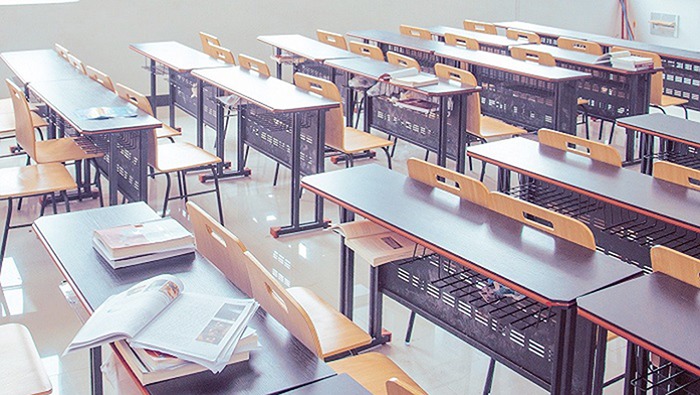
By now, it is evident that the COVID-19 pandemic is leaving behind a wide trail of disruption and destruction. One of the biggest casualties is our mental health, with the pandemic having increased stress and anxiety greatly across the globe. The unfortunate reality is that children are no less immune to this effect.
After more than a year of school closures, remote schooling, online classes and the resultant physical and social isolation, life now is drastically different for children from the way it used to be. And numerous studies recently have highlighted an increase in the negative feelings reported in students and children. The impact can show up as a variety of behavioral changes – loss of motivation, loss of appetite, agitation, fidgeting, sleeplessness, nightmares, withdrawal from interaction and activities, even panic attacks, severe anxiety and depression.
But what can we do about it? Make your well-being your top priority. If you are a student or a parent, here are some points that might help. First of all, acknowledge your feelings. Only by becoming aware of our feelings and accepting these can we work on overcoming our struggles. Journal your thoughts. Create a Worry Box - a box where you can literally deposit all your anxious thoughts. Jot down your troublesome thoughts and drop them in the box and as you do so, imagine letting the box do the worrying for you. Even better, be open to conversations. Share your concerns with your parents, friends, school counsellors and others whom you trust.
One of the primary reasons for children to feel anxious is a lack of routine. Especially in the case of delayed or cancelled classes and exams, or gap year students with ample time, it’s easy to feel a dearth of purpose. The best weapon against that is to have a routine. Create a list of activities and things that make you feel good — books, art, movies, hobbies, learning, projects and the like. Filling up the day with a combination of rest, fun and productivity can make you feel more in control and at the same time provide zest and enthusiasm. Additionally, research suggests some very simple methods to maintain positivity and happiness.
Gratitude
One of these science-backed ways is to practice gratitude. How do we do that? At the end of each day, just before you it the bed, write down the best three things that happened that day in a journal or an app. Every day offers something good, and focusing on that good produces a sense of contentment as you drift off to sleep.
Kindness
Now, this is an activity that makes both the giver and the recipient happy. Science says even just thinking about the kind things you have done can make you happier. So throughout the day, be open to doing random acts of kindness. Like supporting your parents with a chore without being asked, helping out your sibling, or even video calls with lonely, vulnerable relatives seeking social connection. And then track these in a journal or an app, and savour these at the end of the day.
Movement
Everyone knows exercise is essential for good physical health. But it turns out exercise, or even movement is great for our happiness too. So make sure you clock in at least 30 minutes of activity each day. It could be walking, running, cycling, climbing stairs, motion-controlled video games, playing with friends when permitted, indoor PE exercises, or even general moving around in the house.
Love for learning
Nourish a love for learning. Enrol in free or paid MOOCs/ courses on platforms like Coursera, EdX, Udacity, and LinkedIn Learning. I will highly recommend that you take the happiness course taught by Dr Laurie Santos, Professor of Psychology at Yale University. Her Yale course on “Psychology and the good life” became the most popular course in Yale’s history and is now available for free on Coursera as the “Science of Well-being”.
Social connection
If you are isolating as a COVID mitigation measure, make sure to practise physical isolation and not social isolation. Family, friendships, and other social connections make life rich, meaningful and hold immense power in making us feel happy. So reach out virtually to your friends and family and keep the spark going in your friendships with shared experiences. Most importantly, if you think you need further help, do not hesitate to approach a professional. You deserve to be healthy and happy, in mind and body. Stay happy, Stay positive.
Dr Baby Saamuel is the Vice-Chairman, Knowledge Oman and is Ex-Chairman, Indian Schools in Oman. You can contact him at [email protected] for queries or suggestions.